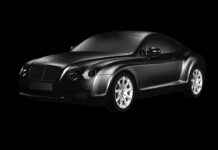This article delves into the reliability, performance, and overall value of Honda Accords, offering insights into their enduring popularity among car buyers. With a solid reputation built over decades, the Honda Accord has become a staple in the midsize sedan market, appealing to a diverse range of consumers.
Honda Accords are often celebrated for their exceptional reliability, frequently earning top rankings in consumer satisfaction surveys. This reliability stems from Honda’s commitment to quality engineering and design. For instance, the use of durable materials and rigorous testing ensures that Accords can withstand the test of time and various driving conditions.
When it comes to performance, the Honda Accord does not disappoint. The driving experience is characterized by smooth handling, responsive acceleration, and impressive fuel efficiency. Many drivers appreciate how the Accord balances comfort and agility, making it suitable for both city driving and long road trips.
The Honda Accord offers a range of engine choices, from a fuel-efficient four-cylinder to a robust V6 option. This variety allows drivers to select an engine that best suits their driving style and needs. The four-cylinder engine is particularly popular for its excellent fuel economy, while the V6 provides a more powerful and dynamic driving experience.
Honda Accords come equipped with both automatic and manual transmission options. The continuously variable transmission (CVT) enhances efficiency and smoothness during acceleration. Consumers often find that the Accord’s driving dynamics, including its steering precision and suspension tuning, contribute to a confident and enjoyable ride.
Safety is a top priority for many car buyers, and the Honda Accord excels in this area. With advanced safety features and high ratings from safety organizations, the Accord is a favored choice for families.
The Honda Accord consistently receives high marks in crash tests conducted by organizations such as the National Highway Traffic Safety Administration (NHTSA) and the Insurance Institute for Highway Safety (IIHS). These ratings reflect the car’s robust construction and advanced safety technologies.
Modern Honda Accords are equipped with a suite of driver assistance technologies, including adaptive cruise control, lane-keeping assist, and collision mitigation braking. These features not only enhance safety but also provide peace of mind for drivers and passengers alike.
In a competitive automotive market, understanding how the Honda Accord measures up against its rivals is essential for prospective buyers.
The Toyota Camry is one of the Accord’s main competitors. Both vehicles offer similar features and pricing, but the Accord often edges out the Camry in terms of interior space and overall driving experience, making it a compelling choice for many.
Another notable competitor is the Nissan Altima. While the Altima boasts unique features and a sporty design, the Honda Accord generally offers superior reliability and resale value, which are critical factors for many buyers.
Owner feedback is invaluable in assessing the true value of a vehicle. Honda Accord owners frequently express high levels of satisfaction, particularly regarding comfort and reliability.
Many Accord owners highlight the car’s spacious interior, smooth ride, and low maintenance costs as significant benefits. These positive experiences contribute to the Accord’s strong reputation in the market.
While the Accord is highly regarded, some owners report common issues such as infotainment system glitches or tire wear. Addressing these concerns can help prospective buyers make informed decisions.
Resale value is a crucial consideration for many car buyers. Honda Accords tend to retain their value exceptionally well compared to other vehicles in their class.
Factors such as condition, mileage, and maintenance history play significant roles in the resale value of Honda Accords. Their reputation for reliability further enhances their appeal in the used car market.
Current market trends suggest that Honda Accords will continue to hold their value, making them a smart investment for buyers looking to purchase a reliable midsize sedan.

What Makes Honda Accords Reliable?
The Honda Accord has established itself as a benchmark for reliability in the automotive industry. With a legacy spanning several decades, this midsize sedan consistently garners high marks in consumer satisfaction surveys. But what exactly contributes to its reputation for dependability? This section will explore the engineering and design elements that underpin the Accord’s long-lasting performance.
- High-Quality Engineering: Honda is known for its meticulous engineering practices. The Accord is built using advanced manufacturing techniques, ensuring that each component is crafted to endure.
- Robust Powertrains: The Accord offers a range of engine options, including fuel-efficient four-cylinder engines and powerful V6 variants. These engines are designed for longevity and efficiency, contributing to the overall reliability of the vehicle.
- Durable Materials: Honda prioritizes the use of high-quality materials in the Accord’s construction. From the body frame to the interior components, the materials used are selected for their durability and resistance to wear and tear.
- Comprehensive Testing: Before reaching consumers, Honda vehicles undergo rigorous testing procedures. This includes simulations and real-world testing to identify potential weaknesses and address them before production.
- Consistent Maintenance: The Accord is designed for easy maintenance, allowing owners to keep their vehicles in top condition with minimal effort. Regular maintenance schedules and readily available parts contribute to its longevity.
Moreover, the Honda Accord benefits from a loyal customer base that actively participates in sharing their experiences. Many owners report that their vehicles have surpassed the expected lifespan, often reaching over 200,000 miles with proper care. This speaks volumes about the Accord’s reliability.
Another crucial aspect of the Accord’s dependability is its advanced safety features. Honda integrates cutting-edge technology into its vehicles, ensuring that safety is a priority alongside performance. The Accord often scores high in safety ratings, which reassures potential buyers about its reliability in protecting occupants.
Additionally, Honda’s commitment to innovation plays a significant role in enhancing the Accord’s reliability. With each new model, Honda incorporates feedback from previous generations, leading to enhancements in design and functionality. This iterative process ensures that the Accord remains at the forefront of reliability standards in the automotive market.
In conclusion, the reliability of the Honda Accord can be attributed to a combination of high-quality engineering, robust powertrains, durable materials, and a commitment to safety and innovation. These factors not only contribute to the vehicle’s performance but also to its lasting appeal among consumers. Whether you are a first-time buyer or looking to upgrade, the Honda Accord remains a solid choice for those prioritizing reliability in their automotive experience.

How Do Honda Accords Perform on the Road?
Performance is an essential aspect of any vehicle, and the Honda Accord is no exception. This mid-size sedan has garnered attention for its impressive driving experience, which encompasses handling, acceleration, and fuel efficiency. In this section, we will delve into these performance metrics to better understand what makes the Honda Accord a standout choice in its class.
The handling of the Honda Accord is one of its most praised attributes. The vehicle is designed with a well-tuned suspension system that provides a balanced ride, whether navigating city streets or winding country roads. Drivers often report that the Accord feels stable and composed, even during sharp turns or sudden maneuvers. This is largely due to its low center of gravity and responsive steering, which enhance driver confidence.
When it comes to acceleration, the Honda Accord offers a range of engine options that cater to different driving preferences. The base model features a fuel-efficient four-cylinder engine, while higher trims are equipped with a more powerful V6. These engines deliver smooth and responsive acceleration, making it easy for drivers to merge onto highways or overtake slower vehicles. According to various automotive reviews, the Accord can go from 0 to 60 mph in approximately 5.5 seconds when equipped with the V6 engine, which is quite competitive in its segment.
In addition to its performance capabilities, the Honda Accord is known for its fuel efficiency. The four-cylinder models typically achieve an impressive EPA rating of around 30 mpg in the city and 38 mpg on the highway. This makes the Accord an excellent choice for those looking to save on fuel costs without sacrificing performance. The hybrid variant further enhances this aspect, offering even better mileage, which appeals to environmentally conscious consumers.
The Honda Accord comes with various transmission options, including a continuously variable transmission (CVT) for the four-cylinder models and a 10-speed automatic for the V6 variants. The CVT is designed to provide seamless acceleration and improved fuel economy, while the 10-speed automatic offers quick shifts and a more engaging driving experience. This versatility allows drivers to choose a setup that best fits their driving style.
Many Honda Accord owners commend the vehicle for its comfortable ride and responsive handling. They often highlight how the Accord performs well in various driving conditions, making it a reliable choice for daily commutes and long road trips alike. Additionally, the cabin remains quiet even at highway speeds, contributing to an overall pleasant driving experience.
When compared to competitors like the Toyota Camry and Nissan Altima, the Honda Accord often comes out ahead in terms of performance metrics. While the Camry offers a sportier feel, many drivers prefer the Accord for its balanced ride and superior fuel efficiency. The Altima, on the other hand, provides unique features but lacks the same level of refinement in handling that the Accord consistently delivers.
In summary, the Honda Accord excels in various performance aspects, making it a well-rounded option for those in the market for a reliable and enjoyable sedan. With its impressive handling, quick acceleration, and excellent fuel efficiency, the Accord continues to be a top choice for drivers seeking a combination of performance and practicality.
Engine Options and Specifications
The Honda Accord has long been a favorite among car enthusiasts and everyday drivers alike, primarily due to its impressive range of engine options and specifications. This section delves into the various engines available for the Accord, highlighting their features and how they cater to diverse driving needs.
The Honda Accord offers a selection of engines designed to meet different performance and efficiency preferences. Below is a breakdown of the engine choices:
- 1.5-Liter Turbocharged Inline-4: This engine is known for its fuel efficiency, delivering an impressive balance between power and economy. With around 192 horsepower, it provides sufficient acceleration for city and highway driving.
- 2.0-Liter Turbocharged Inline-4: For those seeking a bit more power, the 2.0-liter engine produces approximately 252 horsepower. It offers a more spirited driving experience while still maintaining good fuel economy.
- 3.0-Liter V6: The V6 engine option is ideal for drivers who prioritize performance. With up to 278 horsepower, it ensures robust acceleration and a thrilling ride, especially for overtaking on highways.
- Hybrid Powertrain: The Accord also features a hybrid variant that combines a 2.0-liter engine with an electric motor, delivering a total system output of around 212 horsepower. This option is perfect for those looking to reduce their carbon footprint without sacrificing performance.
Each engine option in the Honda Accord is tailored to specific driving preferences. The 1.5-liter turbocharged engine is perfect for those who prioritize fuel efficiency and daily commuting. In contrast, the 2.0-liter turbocharged engine appeals to drivers who enjoy a sportier feel without compromising on economy.
The V6 engine is designed for enthusiasts who crave power and performance, making it an excellent choice for those who frequently drive on highways or enjoy a more dynamic driving experience. Meanwhile, the hybrid option serves eco-conscious drivers, providing an excellent mileage range while still delivering respectable power.
| Engine Type | Horsepower | Torque | Fuel Economy (City/Highway) |
|---|---|---|---|
| 1.5L Turbo Inline-4 | 192 hp | 192 lb-ft | 30/38 mpg |
| 2.0L Turbo Inline-4 | 252 hp | 273 lb-ft | 22/32 mpg |
| 3.0L V6 | 278 hp | 252 lb-ft | 21/32 mpg |
| Hybrid | 212 hp | 232 lb-ft | 48/47 mpg |
In summary, the Honda Accord’s diverse engine lineup allows it to cater to a wide range of drivers, from those seeking maximum fuel efficiency to those desiring thrilling performance. With each engine tailored to specific needs, the Accord remains a versatile and appealing choice in the midsize sedan market.
Transmission and Driving Dynamics
The Honda Accord is a vehicle that has consistently impressed drivers with its blend of performance and comfort. One of the critical aspects that influence the driving experience is the type of transmission. This section delves into the different transmission options available for the Accord and how they impact driving dynamics.
The Honda Accord offers two primary transmission options: automatic and manual. Each type has its unique characteristics that cater to different driving preferences.
- Automatic Transmission: The automatic transmission in the Accord is designed for convenience and ease of use. It features a continuously variable transmission (CVT) in most models, which allows for smooth acceleration and optimal fuel efficiency. This type of transmission adjusts seamlessly to the engine’s power output, providing a responsive driving experience without the need for manual gear changes.
- Manual Transmission: For those who prefer a more engaging driving experience, the Accord also offers a traditional manual transmission option. This allows drivers to have greater control over gear selection, making it a favorite among enthusiasts who enjoy a sportier feel on the road.
The choice between automatic and manual transmissions can significantly alter the driving dynamics of the Honda Accord. Here’s how:
| Aspect | Automatic Transmission | Manual Transmission |
|---|---|---|
| Acceleration | Smoother and more efficient, ideal for city driving. | More responsive, allowing for quick shifts during spirited driving. |
| Fuel Efficiency | Generally higher due to optimized gear ratios. | Can vary based on driver skill and driving conditions. |
| Driver Engagement | Less engaging, suited for relaxed driving. | Highly engaging, providing a connected feel to the road. |
In terms of performance, the automatic transmission is often favored for its ease of use, especially in urban environments where stop-and-go traffic is common. However, the manual transmission appeals to those who enjoy a more tactile driving experience, allowing them to feel more connected to the vehicle.
When considering the performance of the Honda Accord, it’s essential to understand how each transmission type can influence overall driving dynamics:
- Handling: The manual transmission can enhance handling characteristics, particularly during cornering, as drivers can select the optimal gear for their speed and road conditions.
- Acceleration: While the CVT provides smooth and efficient acceleration, the manual transmission can deliver quicker bursts of speed when downshifting is executed properly.
- Driving Conditions: Automatic transmissions are generally better suited for varied driving conditions, while manual transmissions may excel in performance-oriented scenarios.
Ultimately, the choice between automatic and manual transmission in the Honda Accord will depend on personal preferences and driving habits. Both options offer unique advantages that can cater to a wide range of drivers, ensuring that the Accord remains a versatile option in the competitive midsize sedan market.

What Are the Safety Features of Honda Accords?
Safety is paramount for most car buyers, especially families who prioritize the well-being of their loved ones on the road. The Honda Accord stands out as a top choice, thanks to its advanced safety features and impressive safety ratings. In this section, we will explore the key safety attributes that make the Honda Accord a reliable vehicle for family transportation.
The Honda Accord is equipped with a variety of advanced safety technologies designed to enhance protection for both drivers and passengers. Some of the notable features include:
- Adaptive Cruise Control: This feature automatically adjusts the vehicle’s speed to maintain a safe distance from the car ahead, reducing the risk of collisions.
- Lane Keeping Assist: It helps prevent unintentional lane departures by providing steering assistance to keep the vehicle centered in its lane.
- Collision Mitigation Braking System: This system detects potential collisions and applies the brakes automatically if the driver does not respond in time.
- Road Departure Mitigation: It helps prevent unintended road departures by applying brakes if the system determines the vehicle is about to leave the roadway.
Understanding how a car performs in crash tests is essential for assessing its safety. The Honda Accord consistently earns high ratings from reputable organizations such as the National Highway Traffic Safety Administration (NHTSA) and the Insurance Institute for Highway Safety (IIHS). These ratings indicate the Accord’s robust construction and effective safety systems.
For instance, the Accord has received a Top Safety Pick+ designation from the IIHS, reflecting its outstanding performance in various crash tests, including front, side, and rollover tests. This accolade highlights the vehicle’s ability to protect occupants in the event of an accident.
Modern vehicles are increasingly equipped with driver assistance technologies that enhance safety. The Honda Accord features a suite of these technologies, collectively known as the Honda Sensing® suite. This package includes:
- Forward Collision Warning: Alerts the driver of a potential collision with a vehicle or object ahead.
- Traffic Sign Recognition: Detects and displays important traffic signs, helping drivers stay informed about speed limits and other regulations.
- Automatic High Beams: Automatically switches between high and low beams based on surrounding traffic conditions, improving visibility without blinding other drivers.
While crash test ratings provide valuable insights, real-world performance is equally important. Many Honda Accord owners report feeling confident and secure behind the wheel, thanks to the vehicle’s extensive safety features. The combination of structural integrity and advanced technology contributes to a driving experience that prioritizes safety.
In summary, the Honda Accord is a standout choice for families seeking a safe and reliable vehicle. Its comprehensive suite of safety features, coupled with excellent crash test ratings, reinforces its reputation as a leader in automotive safety. With the Honda Accord, families can travel with peace of mind, knowing that they are protected by one of the industry’s most trusted vehicles.
Crash Test Ratings and Performance
Understanding how a car performs in crash tests is essential for any prospective buyer. Safety is a top priority, and the Honda Accord is often recognized for its impressive safety ratings. In this section, we will delve into the crash test ratings of the Honda Accord, examining results from reputable organizations and what they signify for overall safety.
Crash test ratings are evaluations conducted by various safety organizations to assess how well a vehicle protects its occupants during a collision. These tests typically include frontal, side, and rollover crash scenarios. The results are then translated into ratings, which help consumers gauge the safety of a vehicle before making a purchase.
The Honda Accord consistently receives high marks in crash tests. For instance, the National Highway Traffic Safety Administration (NHTSA) often awards it a 5-star overall safety rating. Similarly, the Insurance Institute for Highway Safety (IIHS) frequently designates the Accord as a Top Safety Pick or Top Safety Pick+, indicating superior performance in crashworthiness and crash avoidance.
High crash test ratings signify that the Honda Accord is designed with advanced safety features and structural integrity. This means that in the event of a collision, the vehicle is more likely to absorb impact energy and protect its occupants. The Accord is equipped with features such as:
- Advanced Airbag Systems: Multiple airbags strategically placed throughout the vehicle.
- Electronic Stability Control: Helps maintain control during slippery conditions.
- Anti-lock Braking System (ABS): Prevents wheel lock-up during hard braking.
Interestingly, vehicles with higher crash test ratings often benefit from lower insurance premiums. Insurance companies recognize the reduced risk associated with safer vehicles, which can translate to savings for the driver. Therefore, choosing a Honda Accord not only enhances safety but may also provide financial benefits through lower insurance rates.
The real-world implications of high crash test performance go beyond just numbers. Many Honda Accord owners report feeling more secure knowing their vehicle has undergone rigorous testing and achieved excellent ratings. This peace of mind is invaluable, particularly for families or individuals who frequently travel long distances.
In summary, understanding the crash test ratings of the Honda Accord is crucial for any potential buyer. With consistently high ratings from reputable organizations, advanced safety features, and potential cost savings on insurance, the Accord proves to be a wise investment for those prioritizing safety. The combination of reliability and performance makes the Honda Accord a standout choice in the competitive automotive market.
Driver Assistance Technologies
Modern vehicles have transformed significantly, and the Honda Accord stands out with its impressive array of . These features are designed to enhance safety, improve driving comfort, and reduce the likelihood of accidents. In this section, we will delve into some of the most notable technologies available in the Honda Accord, such as adaptive cruise control and lane-keeping assist, and how they contribute to an overall better driving experience.
Adaptive cruise control is a cutting-edge feature that automatically adjusts the vehicle’s speed to maintain a safe distance from the car in front. Unlike traditional cruise control, which maintains a set speed regardless of traffic conditions, this technology utilizes sensors and radar to monitor surrounding vehicles. If the car ahead slows down, the Honda Accord will automatically reduce its speed and then accelerate back to the preset speed when the road clears. This feature not only enhances convenience during long drives but also significantly reduces driver fatigue.
Lane-keeping assist is another remarkable feature found in the Honda Accord. Utilizing cameras and sensors, this system detects lane markings on the road. If the vehicle begins to drift out of its lane without signaling, the system provides gentle steering assistance to guide the car back into the correct lane. This technology is especially beneficial on long trips or during highway driving, where fatigue can lead to unintentional lane departures.
- Collision Mitigation Braking System: This system helps prevent collisions by automatically applying the brakes if it detects an imminent collision with a vehicle or pedestrian.
- Road Departure Mitigation System: This feature helps keep the vehicle on the road by providing steering and braking assistance if it detects that the vehicle is about to leave the roadway.
- Traffic Jam Assist: This technology combines adaptive cruise control and lane-keeping assist to help drivers navigate through stop-and-go traffic smoothly.
The integration of these advanced technologies in the Honda Accord provides numerous benefits. Firstly, they enhance driver awareness, allowing for a more relaxed driving experience. Secondly, they contribute to overall road safety by reducing the chances of accidents. According to various studies, vehicles equipped with such technologies have demonstrated a significant decrease in collision rates.
For many drivers, the question arises: are these technologies truly worth the investment? The answer largely depends on individual driving habits and preferences. For those who frequently commute or embark on long road trips, the convenience and safety enhancements provided by these features may prove invaluable. Additionally, as technology continues to evolve, having a vehicle equipped with modern driver assistance systems can also enhance its resale value.
In conclusion, the Honda Accord’s driver assistance technologies, including adaptive cruise control and lane-keeping assist, showcase the brand’s commitment to safety and innovation. These features not only enhance the driving experience but also provide peace of mind for drivers and passengers alike.

How Do Honda Accords Compare to Competitors?
In the ever-evolving automotive market, it is essential for consumers to understand how the Honda Accord measures up against its competitors. This section provides a detailed comparative analysis of the Accord with other popular midsize sedans, focusing on key aspects such as performance, features, and pricing.
The Honda Accord faces stiff competition from several established models, including the Toyota Camry and the Nissan Altima. Each of these vehicles has its unique strengths and weaknesses, making it crucial for buyers to understand what sets the Accord apart.
The Toyota Camry is one of the Accord’s most formidable rivals. Both vehicles offer a range of features and performance metrics that appeal to a wide audience.
- Performance: The Camry offers a choice of engines, including a fuel-efficient four-cylinder and a powerful V6, similar to the Accord.
- Interior Quality: While both vehicles feature high-quality interiors, the Accord is often praised for its spaciousness and user-friendly infotainment system.
- Pricing: Generally, the Honda Accord is competitively priced, often coming in slightly lower than the Camry, providing excellent value for money.
Another strong contender is the Nissan Altima, which brings its own set of advantages to the table.
- Technology: The Altima is known for its advanced technology features, including a user-friendly infotainment system and driver assistance technologies that are comparable to those in the Accord.
- Fuel Efficiency: Both vehicles offer impressive fuel economy, but the Altima has a slight edge in its turbocharged engine option, appealing to those who prioritize efficiency.
- Driving Experience: The Accord is often lauded for its smooth and responsive handling, making it a favorite among driving enthusiasts.
Safety is a primary concern for many buyers, and both the Accord and its competitors excel in this area.
- Crash Test Ratings: The Honda Accord consistently receives high ratings from organizations like the IIHS and NHTSA, often outperforming the Camry and Altima in various crash tests.
- Driver Assistance Technologies: Honda’s suite of safety features, known as Honda Sensing, is standard on most trims, providing advanced capabilities like adaptive cruise control and lane-keeping assist.
When comparing vehicles, owner satisfaction can provide valuable insights into real-world performance.
- Honda Accord Owners: Many Accord owners highlight its reliability and comfort as key reasons for their satisfaction.
- Toyota Camry Owners: Camry owners often appreciate its smooth ride and reputation for durability.
- Nissan Altima Owners: Altima drivers frequently mention its stylish design and advanced technology as major selling points.
In summary, the Honda Accord stands out in the competitive midsize sedan market due to its blend of performance, safety, and value. While it faces strong competition from the Toyota Camry and Nissan Altima, the Accord’s reliability and overall driving experience make it a compelling choice for many car buyers.
Comparison with Toyota Camry
The Toyota Camry and Honda Accord are two of the most popular midsize sedans on the market today. Both vehicles have garnered a loyal following due to their reliability, performance, and overall value. In this section, we will conduct a comprehensive comparison of these two models, focusing on their features, performance metrics, and pricing structures to assist potential buyers in making informed decisions.
The Toyota Camry is known for its comfortable interior and user-friendly technology. It typically comes equipped with a variety of standard features, including:
- Touchscreen infotainment system with smartphone integration
- Advanced safety features, such as Toyota Safety Sense
- Spacious seating for up to five passengers
These features contribute to the Camry’s reputation as a family-friendly vehicle, making it a strong contender against the Accord.
Performance is a critical aspect when choosing between the Camry and Accord. The Camry offers a range of engine options, including a fuel-efficient four-cylinder and a robust V6. In contrast, the Honda Accord also provides multiple engine configurations, including a hybrid variant. Here’s a breakdown:
| Model | Engine Options | Horsepower | Fuel Economy (MPG) |
|---|---|---|---|
| Toyota Camry | 2.5L I4 / 3.5L V6 | 203 / 301 | 28/39 (I4) |
| Honda Accord | 1.5L I4 / 2.0L I4 / Hybrid | 192 / 252 / 212 | 30/38 (1.5L) |
Both vehicles offer impressive acceleration and handling, but the choice may come down to personal preference regarding engine performance and driving dynamics.
Pricing is often a decisive factor for buyers. The base model of the Toyota Camry generally starts at a competitive price point, while the Honda Accord offers similar pricing for its entry-level trim. However, optional features and higher trims can significantly affect the final price. Here’s a quick overview:
- Toyota Camry: Starting around $26,000
- Honda Accord: Starting around $27,000
While both vehicles are priced similarly, buyers should consider the long-term value, including maintenance costs and resale value.
Both the Camry and Accord have a strong reputation for reliability, often topping consumer reports and reliability ratings. Owners frequently report minimal issues and high satisfaction rates, making either choice a safe bet for those seeking longevity in their vehicle.
Resale value is a crucial consideration for many buyers. The Toyota Camry has historically held its value well, often outperforming competitors in this category. The Honda Accord also maintains a strong resale value, but factors such as condition and mileage can significantly impact this. According to recent studies:
- Toyota Camry: Retains about 50% of its value after five years
- Honda Accord: Retains approximately 48% of its value after five years
In conclusion, both the Toyota Camry and Honda Accord present compelling options for potential buyers. Each vehicle has its strengths and weaknesses, making them suitable for different preferences and needs. By considering features, performance, pricing, and reliability, buyers can make a well-informed decision that aligns with their lifestyle.
Comparison with Nissan Altima
When it comes to mid-size sedans, the Nissan Altima stands out as a formidable competitor to the Honda Accord. Both vehicles have their unique characteristics, appealing to a wide range of consumers. In this section, we will explore the key differences and similarities between these two popular models, helping potential buyers make an informed decision.
- Design and Aesthetics: The Honda Accord boasts a sleek and modern design, characterized by its bold front grille and streamlined silhouette. On the other hand, the Nissan Altima offers a more aggressive stance with its distinctive V-motion grille and sharp lines. Both vehicles are visually appealing, but the choice ultimately depends on personal taste.
- Performance and Handling: Under the hood, the Honda Accord typically features a range of engines, including a fuel-efficient turbocharged four-cylinder and a powerful V6. The Accord is known for its responsive handling and smooth ride quality. In contrast, the Nissan Altima also offers a turbocharged engine option, providing a sportier driving experience. However, some drivers may prefer the Accord’s overall balance and refinement on the road.
- Interior Comfort and Technology: Inside, the Honda Accord is praised for its spacious cabin and high-quality materials. The infotainment system is user-friendly, featuring a large touchscreen and smartphone integration. The Nissan Altima similarly provides a comfortable interior, but some users report that its infotainment system can be less intuitive. Both vehicles offer ample legroom and trunk space, making them suitable for families.
- Safety Features: Safety is a priority for both manufacturers. The Honda Accord has consistently earned high safety ratings, equipped with advanced driver-assistance features such as adaptive cruise control and lane-keeping assist. The Nissan Altima also includes these technologies, but the Accord’s reputation for safety may give it an edge in this category.
- Fuel Efficiency: Fuel economy is a significant consideration for many buyers. The Honda Accord is known for its impressive fuel efficiency, especially with its hybrid variant. The Nissan Altima also offers competitive fuel economy, particularly with its base engine. However, the Accord often leads in real-world fuel efficiency tests.
In summary, both the Honda Accord and Nissan Altima present compelling options in the mid-size sedan market. While the Accord is often lauded for its reliability, performance, and safety features, the Altima appeals with its sporty design and engaging driving dynamics. Ultimately, the best choice will depend on individual preferences and priorities.

What Do Owners Say About Their Honda Accords?
The Honda Accord has long been celebrated for its blend of style, performance, and reliability. As a result, it’s no surprise that many owners have shared their experiences, providing valuable insights into what it’s like to own this popular sedan. In this section, we delve into the feedback from Honda Accord owners, highlighting their satisfaction levels and the common issues they encounter.
Owner reviews are a crucial aspect of understanding the real-world performance of any vehicle. They offer a glimpse into the daily experiences of drivers and can significantly influence potential buyers’ decisions. Below, we summarize the feedback from Honda Accord owners regarding their overall satisfaction and the issues they commonly face.
- Comfort and Interior Quality: Many owners rave about the spacious and comfortable interior of the Honda Accord. The high-quality materials and thoughtful design contribute to an enjoyable driving experience.
- Fuel Efficiency: Numerous owners have praised the Accord for its impressive fuel economy, especially with the four-cylinder engine options, making it an economical choice for daily commuting.
- Reliability: A significant number of owners report that their Accord has required minimal maintenance, reinforcing Honda’s reputation for building durable vehicles.
- Technology Features: Many Honda Accord owners appreciate the advanced technology features, including the infotainment system and driver-assistance technologies, which enhance convenience and safety.
While the Honda Accord enjoys a strong reputation, no vehicle is without its flaws. Here are some common concerns reported by owners:
- Infotainment Glitches: Some users have experienced issues with the infotainment system, including slow response times and occasional crashes.
- Road Noise: A few owners have noted that road noise can be more pronounced than expected, particularly at higher speeds.
- Transmission Concerns: There have been reports of transmission issues in certain model years, leading to concerns about shifting performance.
- Paint Quality: Some owners have expressed dissatisfaction with the paint quality, citing premature chipping or fading.
When it comes to overall satisfaction, the Honda Accord consistently receives high marks from its owners. Many surveys and reports indicate that a large percentage of Accord owners would recommend the vehicle to friends and family. The combination of reliability, comfort, and fuel efficiency makes it a standout choice in its class.
For those considering purchasing a Honda Accord, many current owners recommend opting for the latest model year to take advantage of improved technology and safety features. Additionally, they advise prospective buyers to thoroughly research different trim levels to find one that best fits their needs.
In conclusion, the feedback from Honda Accord owners highlights a generally positive ownership experience, with many praising its comfort, reliability, and fuel efficiency. While some issues have been reported, they do not seem to overshadow the overall satisfaction that drivers feel with their vehicles. This combination of factors solidifies the Honda Accord’s position as a leading choice among midsize sedans.
Positive Experiences and Highlights
Many Honda Accord owners have shared their enthusiastic feedback, highlighting numerous positive experiences that contribute to the vehicle’s stellar reputation. Here, we explore the most common praises regarding the Accord, focusing on aspects such as comfort, reliability, and overall driving satisfaction.
- Exceptional Comfort: One of the most frequently mentioned benefits of the Honda Accord is its remarkable comfort. Owners often describe the spacious interior, supportive seats, and high-quality materials that make long drives enjoyable. The Accord’s cabin is designed to minimize noise, allowing for a peaceful ride.
- Impressive Reliability: Reliability is a cornerstone of the Accord’s appeal. Many users report that their vehicles have surpassed 100,000 miles with minimal issues. This long-lasting performance is a significant factor in the Accord’s high resale value and customer loyalty.
- Fuel Efficiency: Accord owners appreciate the vehicle’s fuel efficiency, especially in the four-cylinder models. Many drivers note that they can achieve excellent gas mileage, making the Accord a cost-effective choice for daily commuting and long journeys alike.
- Advanced Technology: The Honda Accord is equipped with a range of modern technologies that enhance the driving experience. Features such as the intuitive infotainment system, smartphone integration, and premium audio options receive high marks from users, who enjoy the convenience and connectivity these systems provide.
- Safety Ratings: Safety is a top priority for many car buyers, and the Accord does not disappoint. Owners frequently mention the vehicle’s high safety ratings and the presence of advanced safety features, such as adaptive cruise control and collision mitigation braking, which provide peace of mind on the road.
- Strong Performance: Drivers often highlight the Accord’s balanced handling and responsive acceleration. Whether navigating city streets or highway driving, the Accord delivers a confident driving experience that many owners find enjoyable.
In addition to these highlights, many owners appreciate the Honda Accord for its overall value. The combination of affordability, performance, and low maintenance costs makes it a compelling choice in the midsize sedan market. As a result, the Accord has earned a loyal following among drivers who prioritize quality and dependability.
Overall, the positive experiences shared by Honda Accord owners reflect a vehicle that consistently meets and exceeds expectations. The blend of comfort, reliability, and advanced features positions the Accord as a standout option for anyone in the market for a new car.
Common Issues and Concerns
No vehicle is without its flaws, and the Honda Accord is no exception. While it is widely praised for its reliability and performance, some owners have reported specific concerns that potential buyers should consider. This section addresses the common issues and concerns reported by Honda Accord owners, providing a balanced view of ownership.
Honda Accord owners have shared various experiences that highlight both strengths and weaknesses. Below are some of the most frequently reported issues:
- Transmission Problems: Some owners have reported issues with the automatic transmission, particularly in older models. Symptoms can include rough shifting or delayed engagement.
- Electrical System Failures: A number of Accord owners have experienced problems with the electrical system, including malfunctioning lights, battery issues, and problems with the infotainment system.
- Brake Wear: While the Accord is generally known for its safety, some users have noted that brake pads wear out faster than expected, leading to increased maintenance costs.
- Suspension Noise: Unusual noises from the suspension system, particularly when driving over bumps, have been reported, which may indicate premature wear on components.
Understanding these common issues is crucial for prospective buyers. While many Honda Accord owners report high satisfaction levels, the aforementioned problems can affect ownership experience in several ways:
- Maintenance Costs: Frequent issues may lead to higher maintenance costs over time, which can diminish the overall value of owning an Accord.
- Resale Value: Vehicles with known issues can experience depreciation more rapidly, impacting resale value in the used car market.
- Owner Satisfaction: While many owners enjoy their Accords, those who encounter persistent issues may feel frustrated, leading to mixed reviews.
Despite the issues, many Honda Accord owners recommend the vehicle for its overall reliability and comfort. Here are some recommendations based on owner feedback:
- Regular Maintenance: Owners emphasize the importance of adhering to the recommended maintenance schedule to prevent issues from escalating.
- Research Model Years: Potential buyers are advised to research specific model years, as certain years may have more reported issues than others.
- Consider Extended Warranties: For peace of mind, many owners suggest considering extended warranties, especially for used models that may have higher mileage.
In summary, while the Honda Accord is celebrated for its many qualities, it is essential to be aware of the common issues reported by owners. By understanding these concerns and taking proactive steps, potential buyers can make informed decisions and enjoy a positive ownership experience.

What Is the Resale Value of Honda Accords?
The resale value of a vehicle is a critical consideration for many car buyers, and the Honda Accord stands out in this regard. As a popular midsize sedan, the Accord has consistently demonstrated strong performance in the used car market. This article delves into the depreciation rates of Honda Accords and evaluates how they maintain their value over time.
Understanding Depreciation Rates
Depreciation refers to the decline in a vehicle’s value over time. For the Honda Accord, several factors influence its depreciation rate:
- Brand Reputation: Honda is well-known for producing reliable and durable vehicles, which helps the Accord retain its value.
- Market Demand: The Accord’s popularity ensures a steady demand in the used car market, positively impacting its resale value.
- Condition and Mileage: A well-maintained Accord with lower mileage will generally fetch a higher resale price.
How Does the Honda Accord Compare to Competitors?
When compared to other vehicles in its class, such as the Toyota Camry and Nissan Altima, the Honda Accord often holds its value better. According to industry reports, the Accord tends to depreciate at a slower rate than many of its competitors. This is attributed to its strong reputation for reliability and customer satisfaction.
Factors Influencing Resale Value
Several key factors can influence the resale value of Honda Accords:
- Condition: Cars that have been well cared for, with regular maintenance records, will typically see higher resale values.
- Trim Level: Higher trim levels with additional features often retain more value than base models.
- Color and Options: Popular colors and desirable options can also impact resale value, making certain vehicles more appealing to buyers.
Market Trends and Predictions
Current market trends indicate that Honda Accords are likely to maintain strong resale values in the coming years. Factors such as rising fuel prices and a growing preference for fuel-efficient vehicles play a role in this trend. As hybrid and electric vehicles gain popularity, the demand for reliable sedans like the Accord will likely continue.
Expert Insights on Resale Value
Experts recommend that potential buyers consider the long-term investment when purchasing a Honda Accord. With its history of reliability and strong resale value, the Accord is often seen as a smart choice for those looking to maximize their investment. Additionally, the availability of certified pre-owned Accords offers buyers peace of mind, as these vehicles undergo rigorous inspections and come with extended warranties.
Conclusion
In summary, the Honda Accord’s resale value is a significant factor that attracts many buyers. With its strong reputation, reliable performance, and consistent demand in the used car market, the Accord remains a wise investment. Understanding the factors that influence its resale value can help buyers make informed decisions, ensuring they get the best value for their money.
Factors Influencing Resale Value
The resale value of a vehicle is a crucial consideration for many car buyers, especially when it comes to long-term financial planning. Honda Accords are well-regarded in this aspect, but what exactly influences their resale value? In this section, we will explore the various factors that play a significant role in determining the resale value of Honda Accords compared to other vehicles.
The condition of a car is one of the most significant factors impacting its resale value. A well-maintained Honda Accord will typically command a higher price in the used car market. Factors such as exterior and interior condition, the functionality of all components, and service history are crucial. Buyers tend to pay more for vehicles that show minimal signs of wear and tear, and a clean service record can further enhance value.
Mileage is another critical factor influencing resale value. Generally, cars with lower mileage are more desirable, as they are perceived to have more life left in them. Honda Accords often perform well in this area, with many owners reporting high mileage without significant issues. However, as mileage increases, the potential for wear and tear also rises, leading to depreciation. Buyers should consider the average mileage for similar vehicles when assessing resale value.
Having a comprehensive maintenance record can significantly boost a Honda Accord’s resale value. Regular maintenance not only ensures the car runs optimally but also assures potential buyers that the vehicle has been cared for. This documentation can include oil changes, tire rotations, and any major repairs. Cars with detailed maintenance histories often sell for a premium compared to those without.
The market demand for specific vehicles can fluctuate based on trends, fuel prices, and consumer preferences. Honda Accords consistently rank high in reliability and customer satisfaction, making them a sought-after choice in the used car market. When demand is high, resale values tend to increase, allowing sellers to benefit from their investment.
A vehicle history report provides potential buyers with vital information regarding a car’s past, including any accidents, title issues, or odometer discrepancies. Honda Accords with clean histories typically fetch higher resale values. Buyers are more inclined to invest in vehicles that have not been involved in serious accidents or sustained significant damage.
When comparing the resale value of Honda Accords to other vehicles, it’s essential to consider the overall brand reputation. Honda is known for manufacturing reliable cars, which contributes to higher resale values compared to brands with less favorable reputations. For instance, while some vehicles may depreciate quickly, Honda Accords tend to hold their value better over time.
Market trends can provide insights into the future resale value of Honda Accords. For example, as electric and hybrid vehicles gain popularity, traditional gasoline-powered cars may see shifts in their resale values. However, Honda’s commitment to innovation and sustainability, including hybrid models of the Accord, positions it well in an evolving market.
In summary, the resale value of Honda Accords is influenced by a combination of condition, mileage, maintenance records, market demand, and vehicle history. Understanding these factors can help both buyers and sellers navigate the used car market effectively.
Market Trends and Predictions
In the ever-evolving landscape of the automotive market, understanding market trends is crucial for buyers looking to make informed decisions, especially when considering a vehicle like the Honda Accord. This section delves into the current market dynamics, offering insights into the future resale value of Honda Accords based on existing trends.
The Honda Accord has consistently maintained its status as a popular midsize sedan. Recent trends indicate a growing preference for fuel-efficient vehicles and those equipped with advanced technology. As consumers become more environmentally conscious, the demand for hybrid and electric variants is increasing. The Honda Accord, with its hybrid model, is well-positioned to cater to this shift.
Economic factors play a significant role in determining the resale value of vehicles. Factors such as inflation rates, interest rates, and overall economic health can impact consumer purchasing power. During economic downturns, buyers may gravitate towards more affordable options, which can affect the resale value of the Honda Accord. However, its reputation for reliability often helps it retain value better than some competitors.
Mileage is one of the most critical factors influencing a vehicle’s resale value. Generally, lower mileage translates to a higher resale price. The Honda Accord is known for its durability, often surpassing the 200,000-mile mark with proper maintenance. This longevity appeals to buyers in the used car market, enhancing its resale prospects.
When comparing the Honda Accord to other vehicles, it consistently ranks high in resale value retention. For instance, models like the Toyota Camry and Nissan Altima also perform well, but the Accord often edges them out due to its strong reputation for reliability and lower maintenance costs. A comparative analysis shows that the Accord’s resale values tend to be stable over time, making it a smart investment for buyers.
Looking ahead, experts predict that the resale value of the Honda Accord will remain strong, particularly as the automotive industry shifts towards eco-friendly options. The increasing popularity of hybrid models is likely to bolster the resale market, especially as fuel prices fluctuate. Additionally, the Accord’s consistent updates and features keep it appealing to a broad audience, ensuring its relevance in the market.
To maximize the resale value of a Honda Accord, owners should consider the following tips:
- Regular Maintenance: Keeping up with scheduled maintenance can prevent issues that may lower resale value.
- Keep Records: Documenting service history can provide potential buyers with confidence in the vehicle’s condition.
- Limit Modifications: While personalizing a vehicle can be tempting, it may not appeal to future buyers.
- Maintain Cleanliness: Regular cleaning and detailing can enhance the car’s appearance, making it more attractive to buyers.
In summary, understanding current market trends and economic factors can significantly influence the resale value of Honda Accords. Buyers who stay informed and take proactive measures can ensure they make sound investments and enjoy the benefits of owning a Honda Accord.
Frequently Asked Questions
- Are Honda Accords reliable vehicles?
Absolutely! Honda Accords are often praised for their reliability. They consistently rank high in consumer satisfaction, thanks to their solid engineering and design. Owners frequently report minimal issues, making them a trusted choice for many drivers.
- What kind of performance can I expect from a Honda Accord?
The performance of a Honda Accord is impressive! With options ranging from fuel-efficient four-cylinder engines to powerful V6 variants, the Accord caters to different driving preferences. Plus, it offers excellent handling and fuel efficiency, making it a joy to drive.
- What safety features does the Honda Accord have?
Safety is a top priority for Honda, and the Accord is loaded with advanced safety features. It includes adaptive cruise control, lane-keeping assist, and boasts high crash test ratings, ensuring peace of mind for you and your passengers.
- How does the Honda Accord compare to its competitors?
When stacked against competitors like the Toyota Camry and Nissan Altima, the Honda Accord holds its own. It offers a great balance of features, performance, and pricing, making it a smart choice in a crowded market.
- What do Honda Accord owners say about their cars?
Owners rave about the Accord’s comfort and reliability! Many highlight their positive experiences, but some report common issues, providing a balanced view of ownership. Overall, the feedback is overwhelmingly positive.
- What is the resale value of Honda Accords?
Honda Accords maintain strong resale value, thanks to their reliability and demand in the used car market. Factors like condition and mileage can influence this, but overall, they hold up well compared to other vehicles.













